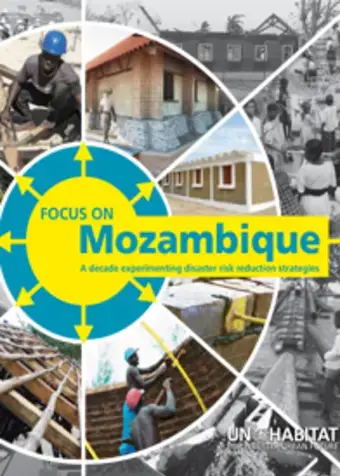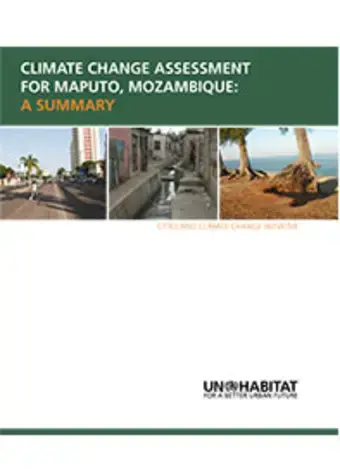 A water operators’ partnership (WOP) is a collaboration between two or more water or sanitation operators, conducted on a not-for-profit basis, in the aim of developing their capacity. These partnerships are being used as a way of helping the world’s public operators to sustainably deliver adequate water and sanitation for all.
A water operators’ partnership (WOP) is a collaboration between two or more water or sanitation operators, conducted on a not-for-profit basis, in the aim of developing their capacity. These partnerships are being used as a way of helping the world’s public operators to sustainably deliver adequate water and sanitation for all.
Mozambique
Overview
Since 2002, we are dedicated to working for a sustainable and resilient urban future for Mozambique. Over the past 17 years, UN-Habitat Mozambique has been developing and implementing a country programme based on the priority areas defined by Government of Mozambique, development partners and the main global development agendas. Currently, UN-Habitat Mozambique’s three programme pillars are: Sustainable Urbanisation; Disaster Risk Reduction and Climate Change Adaptation; and Security of Land Tenure and Affordable Housing.
UN-Habitat has a long experience in Mozambique and has gained trust and credibility from the government and different partners for its work in the field of disaster risk reduction, urban planning, resilience and housing. The work carried out translates into technical advisory and normative services, a broad array of publications, pilot construction projects (school, health posts, radio station and housing, etc.), slum upgrading projects, plan and policy development and training of local, provincial and national staff. UN-Habitat adopts a strong community based and participatory approach with local communities and authorities in all its activities.
Mozambique has been one of Africa’s fastest growing economies throughout the past years, driven by investments related to the exploration of natural resources.In the coming 25 years urban areas in Mozambique will continue growing rapidly and will have to accommodate 80 thousand new households annually. It is estimated that around 60% of Mozambicans live along the Indian Ocean coastline or in river flood-prone areas, vulnerable to flooding, seasonal cyclones and chronic drought.
Furthermore, there are serious solid waste management problems in Mozambican cities and towns. The combination of lack of solid waste management (blocking drainage systems, often causing urban flooding) and the high likelihood of flooding to cause waterborne diseases that spread easily in densely occupied urban areas.
Urban Population (2018): 36%
Urban Growth Rate (2015-2020): 4.35%
Donors and partners
UN-Habitat has a long experience in Mozambique and has gained trust and credibility from the government and different partners for its work in the field of disaster risk reduction, urban planning, resilience and housing. The work carried out translates into technical advisory and normative services, a broad array of publications, pilot construction projects (school, health posts, radio station and housing,etc.), slum upgrading projects, plan and policy development and training of local, provincial and national staff. UN-Habitat adopts a strong community based and participatory approach with local communities and authorities in all its activities.
Donors
Contact
Legacy content
- Total value of UN-Habitat investments (2008-2015): US$ 7,104,743
- Total number of UN-Habitat projects (2008-2015): 14 projects
- Main donors: Spain, UNDP/ Spain MDGF, One UN Fund, Booyoung, IBRD/World Bank, BASF AG, FAO, European Commission and the Africa, Caribbean and Pacific Secretariat
- Implementing partners: FAO,COOPI, CARE,UNEP, UNIDO, INE, MTRAB, MMCAS, MINAG, CTA, OTM, INEFP, CONSILMO, UEM, Provincial Governments of Nampula, Cabo Delgado, Gaza, Tete, Manica, Sofala and Zambezia, The Ministry for Coordination of Environmental Affairs (MICOA), especially through its National Directorate of Territorial Planning and its Sustainable Development Centre for Urban Areas (CDS-ZU) located in Nampula, The Ministry of Planning and Development (MPD), The Ministry of Public Works and Housing (MOPH), The Ministry for State Administration (MAE), The Ministry of Transport and Communication (MTC), The Government of the Nampula Province, Municipal and district authorities in Nampula Province National Association of Municipalities of Mozambique (ANAMM), JICA, World Bank, UNDP
General information
Capital: Maputo
Major cities: Matola, Beira, Nampula, Chimoio, Nacala , Quelimane, Tete, Xai-Xai, Maxixe
- Population: 26.4 million
- GDP: US$16,3 Billion
- GDP growth: 7.4%
- Urban population (annual %): 31,6%
- Population growth rate (average annual %): 2%
- Urban population growth rate (average annual %): 3%
- Rural population growth rate (average annual %): 2 %
Source: World Bank 2012


